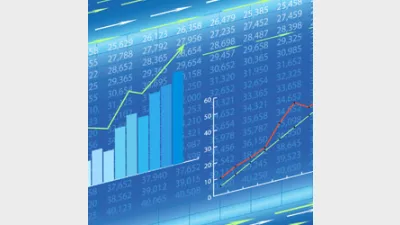GFC not the cause of retail shareholder exodus



Australian retail investors have been dumping local equity holdings since 2002, new research has found.
Contrary to prior studies, research for the Australasian Investor Relations Association (AIRA) based on company annual reports provided by Morningstar has shown that small shareholders have been selling off shares since 2002 — before the Global Financial Crisis (GFC) in 2008.
It found the percentage of issued capital held by investors owning fewer than 10,000 shares in the average ASX300 company declined from 15.1 per cent in 2002 to 9.9 per cent in 2011.
University of Melbourne Professor, Dr Carole Comerton-Forde, who conducted the study, said the ASX Share Ownership Surveys in the 1990s had suggested increasing levels of retail ownership; however the findings showed this trend to have been declining since 2002.
"Interestingly, this trend predates both the GFC and various market structure changes — both of which are argued to have caused a decline in retail investment," she said.
Small shareholders were selective and showed preference for companies that paid consistent, fully-franked dividends.
They were concentrated in the larger, "safer", higher yielding ASX20 companies — 97.1 per cent of shareholders in the average ASX20 stock were small shareholders yet they owned only 25.2 per cent of shares.
Conversely, institutional investors including super funds and large offshore investors had been increasing investment in the ASX300 since 2002, with the percentage of issued capital moving from 84.9 per cent in 2002 to 90.1 per cent in 2011. Institutions held 74.8 per cent of the issued capital in the ASX20 yet constituted only 2.9 per cent of shareholders.
AIRA chief executive Ian Matheson said the findings showed the need for an institutional presence in the annual general meetings of listed companies.
"If such large percentages of most ASX300 companies are held by institutional investors, then perhaps greater encouragement should be given to them to vote, as on average only 60 per cent of the shares of those companies are voted," he said.
Recommended for you
The central bank has released its decision on the official cash rate following its November monetary policy meeting.
Melbourne advice firm Hewison Private Wealth has marked four decades of service after making its start in 1985 as a “truly independent advice business” in a largely product-led market.
HLB Mann Judd Perth has announced its acquisition of a WA business advisory firm, growing its presence in the region, along with 10 appointments across the firm’s national network.
Unregistered managed investment scheme operator Chris Marco has been sentenced after being found guilty of 43 fraud charges, receiving the highest sentence imposed by an Australian court regarding an ASIC criminal investigation.











